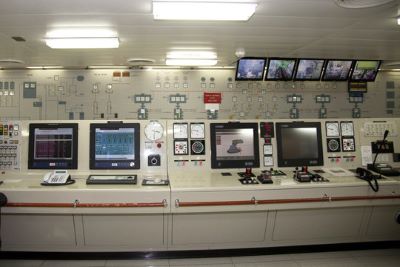
- This event has passed.
Process Control & Instrument System

Background
Control systems play a crucial role in modern industrial processes, ensuring efficiency, accuracy, and stability. The ability to design, analyze, and optimize these systems is essential for maintaining consistent operation and improving performance.
This course is designed to equip participants with a strong foundation in control system principles and practices. From understanding core terminology and analyzing time-domain responses to mastering PID control modes and advanced tuning methods, participants will gain the skills needed to implement and troubleshoot control systems effectively.
Objectives
After completing this course, participants will be able to:
- Understand key control system terminology.
- Analyze time-domain responses in control systems.
- Explain the types of control modes (PID) and their algorithms.
- Apply cascade control in industrial settings.
- Differentiate between feedback and feedforward control systems.
- Utilize various methods for PID tuning to enhance system performance.
Recommended Participants
This course is ideal for professionals involved in control system operations, including:
- Operators and Instrument Technicians.
- Instrument Foremen and Control System Technicians.
- Instrument Engineers and Supervisors.
- Control System Supervisors.
- IT System Integrators specializing in industrial automation.
Course Outline
1. Control System Terminology
- Control system input and output.
- Open-loop and closed-loop control systems.
- Feedback, controlled variable, manipulated variable, and disturbances.
- Process time lags and control loop diagrams.
2. Time Domain Analysis
- Transient and steady-state response.
- Time domain input functions.
- Laplace transform and transfer functions.
- Time-domain response for first- and second-order systems.
- Step response analysis.
3. Control Modes – PID Controller
- ON/OFF control.
- Proportional, integral, and derivative control modes.
- Variations of PID control (PI, PD, PID).
4. Cascade Loop Control
- Advantages of cascade control.
- Components of cascade control.
- Cascade primary and secondary loops.
- Practical examples of cascade control applications.
5. Feedback & Feedforward Control
- Comparison between feedback and feedforward control systems.
- Limitations and advantages of each control method.
6. PID Controller Tuning
- PID tuning methods: Ziegler-Nichols closed-loop method and Cohen-Coon method.
- Demonstrations and hands-on exercises for each tuning method.
Methodology
- Instructor-led theory presentations.
- Group discussions and case-solving exercises.
- Laboratory or field visits for practical demonstrations.
- Case studies based on real-world scenarios.
This course combines theoretical learning with practical applications to ensure participants can confidently apply their knowledge in professional settings.
